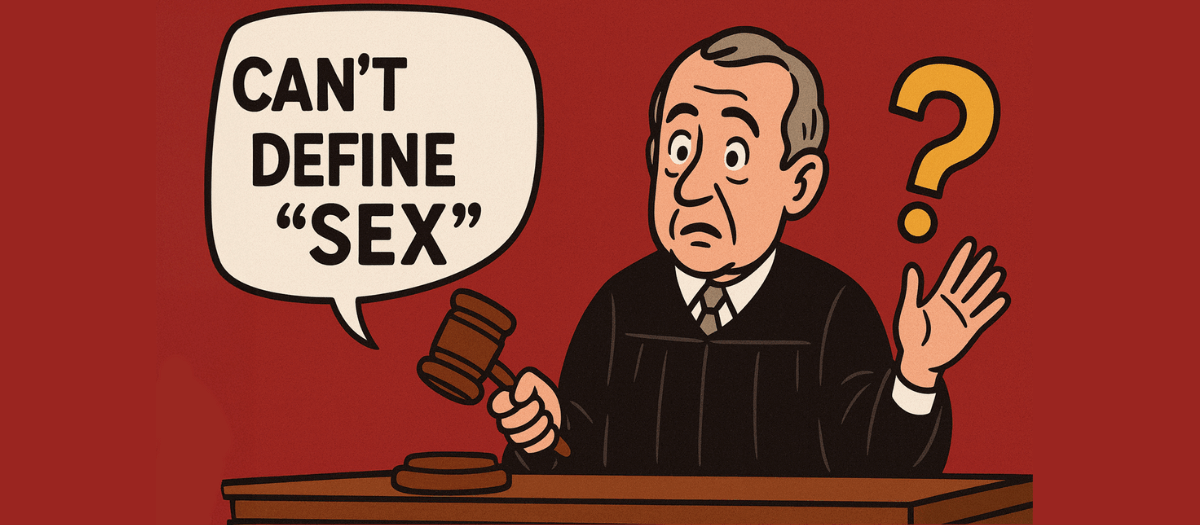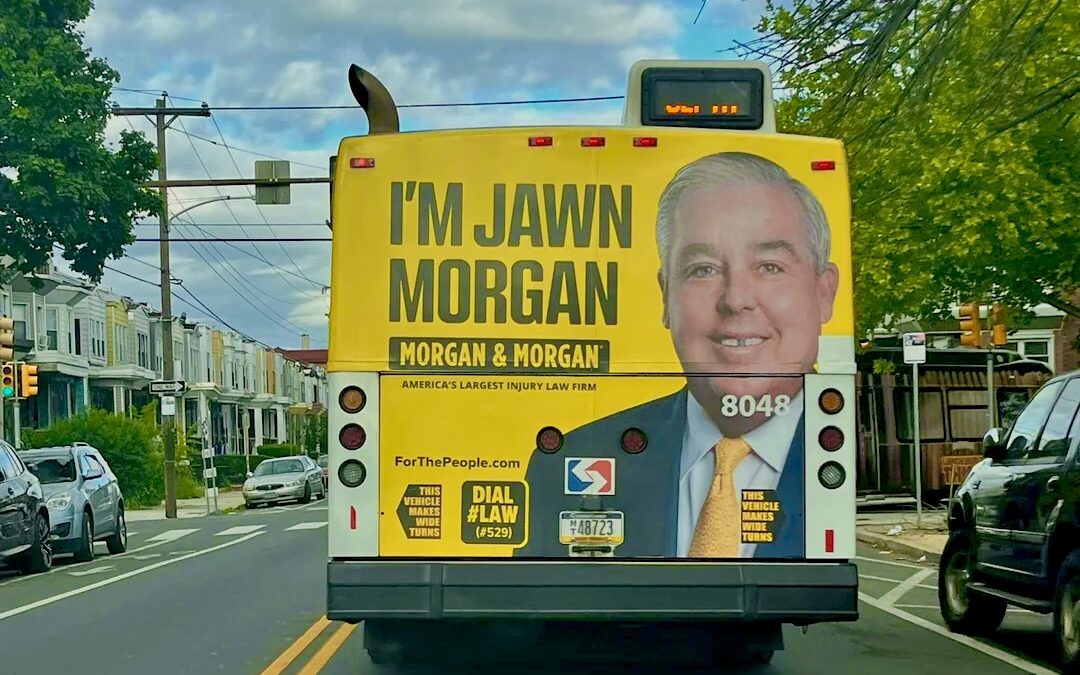Pa. Supreme Court justice excoriates Krasner, alleges abuse of grand jury process
A justice on the Pennsylvania Supreme Court published a “special concurrence” Wednesday morning excoriating Philadelphia District Attorney Larry Krasner and the conduct of his office regarding the case of a Philadelphia officer who shot and killed a man who fled from a traffic stop.
The nineteen-page filing by Justice Kevin M. Dougherty is a stunning rebuke of Krasner and his methods and comes just as an impeachment effort against the progressive prosecutor has found its footing in Harrisburg.
A request for comment to Krasner’s office from Broad + Liberty was not returned. DAO spokeswoman Jane Roh told the Inquirer that the office would not be commenting on the findings.
Justice Dougherty alleges Krasner lacked candor through many portions of the proceedings, and that he manipulated the grand jury process in unethical ways.
Former PPD officer Ryan Pownall fatally shot David Jones in 2017, when Pownall confronted the man for riding a dirt bike on a city street.
Krasner has since used the case in an attempt to completely overhaul the long-used understanding of Pennsylvania law as to what constitutes the legal use of deadly force by officers.
Judge Dougherty had previously expressed some skepticism about the case, but fully unburdened himself with the Wednesday filing. His writing focused less on the deadly use-of-force issue at play in the actual incident involving Pownall, and focused more about the tactics employed by Krasner and his fellow prosecutors.
“A special concurrence is unusual. But so is the Philadelphia District Attorney’s Office’s (‘DAO’) prosecution in this case. That is why I feel compelled to write separately, unconstrained by majority authorship, to pull back the curtain on some of the concerning irregularities that lurk just beneath the surface of this appeal,” Dougherty wrote.
Justice Dougherty, who has roots in Philadelphia, began by noting that officer-involved shootings erode the trust of the judicial system in the community, but also noted that prosecutors must treat all actors in the court equally and fairly.
“Yet, here, I cannot say the DAO has treated Pownall fairly and equally,” Dougherty said.
“At least three aspects of the DAO’s prosecution give me serious pause: (1) its failure to provide the investigating grand jury with all relevant legal definitions; (2) its successful attempt to deny Pownall a preliminary hearing; and (3) its relentless but unsuccessful attempt to change the peace officer justification law prior to Pownall’s trial.”
The first problem, Dougherty wrote, “implicates a potential abuse of the grand jury process.” According to Pownall’s attorneys, Kranser’s office “intentionally failed to notify the grand jury of the peace officer justification defense,” a part of Pennsylvania law that allows law enforcement officers to use deadly force in certain situations. Krasner believes that law is contradicted by federal law, but that has not yet been held to be the case in Pennsylvania.
A further abuse, Dougherty says, is that having presented the grand jury with only a partial picture of the law they are meant to enforce, Krasner secured an indictment and then unsealed it and released it to the media. “Not surprisingly, multiple news sources reported on the presentment’s one-sided account, with some even making the full document available online for anyone and everyone to read.”
That offense was compounded, Dougherty wrote, with Krasner’s office’s next misstep in denying Pownall a preliminary hearing. “Theoretically, that error could have been remedied by adherence to one of the statutory safeguards embedded in the process: the requirement that ‘the defendant shall be entitled to a preliminary hearing.’ What is troubling is the DAO’s effort to ensure that would not occur.”
Dougherty wrote that the record in the case suggests that this was no mere mistake: “Remarkably,” he wrote, “the DAO appears to have known all this at the time it filed its motion.”
For the third and final issue described by Dougherty, he faults Krasner for “The DAO’s lack of candor with respect to its underlying constitutional claim; and (2) the questionable timing of the motion’s filing and subsequent appeal.”
Dougherty noted that the DAO’s motion in limine — which essentially means a motion outside of the jury’s presence and is often used as a method to exclude evidence that can be presented to a jury — presented “only half the relevant picture.”
“This type of advocacy would be worrisome coming from any litigant…That it was the prosecution’s doing is even more concerning, particularly in light of the motion’s timing[.]”
Dougherty concluded that, “[w]hen combined with the other tactics highlighted throughout this concurrence, a compelling argument may be made that the DAO’s decision to delay Pownall’s trial further by taking an unauthorized interlocutory appeal was intended to deprive him of a fair and speedy trial.”
The sheer scope of the rebuke, combined with the fact it comes from a Democratic Justice on the state’s highest court will no doubt be noticed by Harrisburg Republicans who are campaigning to impeach Krasner for dereliction of duty.
Dougherty, the brother of former IBEW boss Johnny Dougherty, was first elected to the court in 2015.
This is a developing story, and Broad + Liberty expects to add updates later in the day.
Kyle Sammin contributed to this report.
Todd Shepherd is Broad + Liberty’s chief investigative reporter. Send him tips at tshepherd@broadandliberty.com, or use his encrypted email at shepherdreports@protonmail.com. @shepherdreports





“At least three aspects of the DAO’s prosecution give me serious pause: (1) its failure to provide the investigating grand jury with all relevant legal definitions; (2) its successful attempt to deny Pownall a preliminary hearing; and (3) its relentless but unsuccessful attempt to change the peace officer justification law prior to Pownall’s trial.”
These are identical facts that happened to Officer Ruch as well who shot a murder suspect who almost killed a cop when fleeing with his vehicle.
As for officer Mendoza, it is too early to say.
This is beyond corruption.
Philadelphians elected Krasner and then, after four years of his behavior in office, re-elected him. Apparently this is what the voters in Philadelphia want.
Lazy non voters are why he won. He only got the majority of the wackos who turned out. Which was a fraction of the 1.2 million voter pool. If the good people who can’t be bothered actually cared on voting day…he’ loses easily.
I am not a fan of Krasner’s approach to being DA. However, Frank is quite right in that the people of Philadelphia elected him and then reelected him. They either like what they are getting or don’t care enough to oppose those who do like his performance as DA. Eithr way, he is a duly elected official and the legislature shoul just make sure s=that he follows the law and does the job he was elected to do. He has statutory responsibilities, and should be required to follow them. Where he has discretion, that comes with the job and that is apparently want the people of Philadelphia want, as determined by their vote or non-vote.
Justice Dougherty’s brother is not “the former IBEW boss”. He is the retired IBEW Buisness Manager.
This justice is the kind of sane Democrat we used to have in this state and need to have again in order to save our democracy.
I’m not surprised the DAO declined to comment. During the last election he wouldn’t debate with other candidates, which didn’t surprise me either. Is it because his policies and agenda are indefensible in a public forum?